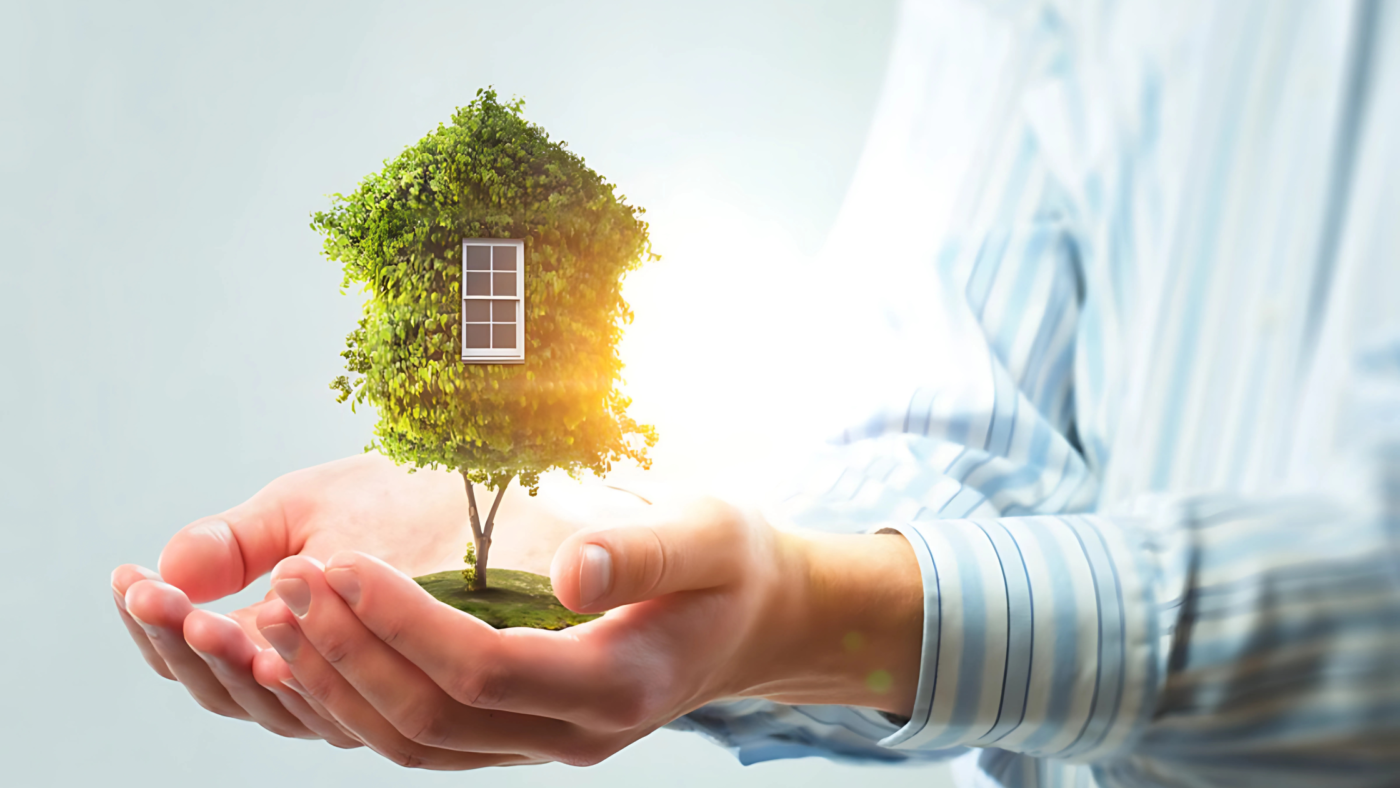Imagine living in a magnificent house that is not only energy-efficient but also conserves water and ensures an unobstructed flow of fresh air inside. That’s what LEED-certified Green Real Estate buildings promise to do.
In 2024, India made a significant impact with its strong commitment to sustainability, securing the third position globally for LEED (Leadership in Energy and Environmental Design) green building certifications. This milestone reflects a shift towards eco-conscious real estate, promising long-term environmental and financial benefits.
But what does Green Real Estate it really mean for the Indian real estate sector?
How does it impact homebuyers, investors, and developers? Should one consider a green-certified home for their next investment?
Let’s break it down step by step.
What is LEED Certification?
LEED is one of the world’s most recognized certification programs for green buildings, established by the U.S. Green Building Council (USGBC). This certification evaluates buildings based on their environmental impact and efficiency in various domains, including:
- Energy Efficiency: Reduction of electricity consumption, improved insulation, and smart lighting solutions.
- Water Conservation: Implementation of rainwater harvesting, water-efficient plumbing, and water recycling.
- Sustainable Materials: Use of eco-friendly and recyclable construction materials.
- Indoor Air Quality: Enhanced ventilation systems, non-toxic paints, and improved air purification.
- Waste Management: Efficient recycling and reduction of construction waste.
LEED certification is categorized into four levels:
- Certified – Basic sustainability compliance.
- Silver – Enhanced efficiency measures.
- Gold – High standards of sustainability.
- Platinum – The ultimate benchmark in green building excellence.
India’s Growth in Green Building Certifications
India’s rise in the global LEED rankings is driven by several key factors:
- Government Policies & Incentives: The implementation of the Energy Conservation Building Code (ECBC) and the Smart Cities Mission has encouraged developers to adopt sustainable practices.
- Corporate ESG Commitments: Companies are increasingly investing in green-certified office spaces to align with their Environmental, Social, and Governance (ESG) goals.
- Consumer Preferences: Homebuyers are prioritizing energy-efficient, eco-friendly homes to reduce utility bills and improve living conditions.
- Financial Benefits: Green buildings offer lower operational costs and long-term savings, making them an attractive investment for developers and buyers alike.
Impact on Indian Green Real Estate
The growing adoption of green-certified buildings is significantly reshaping India’s Green Real Estate sector in multiple ways:
1. Rising Demand for Green Homes
Homebuyers are increasingly seeking sustainable living solutions that offer:
- Solar panels and renewable energy systems.
- Energy-efficient windows and insulation.
- Smart home automation for sustainability.
- Water recycling and rainwater harvesting systems.
2. Increased Property Value and ROI
Investing in green homes provides long-term financial advantages, including:
- Lower utility costs, leading to increased buyer demand.
- Higher resale value, with green homes selling at a 5-10% premium.
- Government incentives and tax benefits for eco-friendly housing projects.
3. Growth in Green Commercial Spaces
Corporations in cities like Bangalore, Mumbai, and Gurugram are opting for LEED-certified office spaces due to:
- Energy cost savings of 30-50%.
- Preference by multinational corporations for environmentally responsible office environments.
4. Government Support for Sustainable Development
Several government initiatives are fueling India’s green real estate expansion:
- Energy Conservation Building Code (ECBC): Mandating energy-efficient building designs.
- Smart Cities Mission: Promoting sustainable urban development.
- Financial Incentives: Tax rebates and subsidies for green-certified projects.
The Future of Green Real Estate in India
With India ranking third globally in LEED certifications, the trajectory of Indian real estate is set toward sustainability. Key trends expected in the coming years include:
- Expansion of Green Homes & Smart Cities: More residential and commercial projects integrating eco-friendly features.
- Increased Demand for Certified Buildings: Homebuyers and investors prioritizing properties with sustainability credentials.
- Stricter Regulatory Compliance: Enhanced building codes and regulations to promote sustainable construction practices.
Conclusion: The Way Forward
India’s achievement in the global LEED rankings is more than just a numerical milestone—it represents a paradigm shift in real estate towards energy efficiency, environmental responsibility, and financial viability. Investing in or developing LEED-certified properties is no longer just an option; it is the future of real estate.
At 10X Money Realtors, we are committed to promoting sustainable Green Real Estate solutions that benefit homebuyers, investors, and the environment. As the demand for green buildings continues to rise, now is the perfect time to explore eco-friendly investments that ensure long-term value and sustainability.
Are you ready to be a part of India’s green real estate revolution? For more details visit The Economic Times


